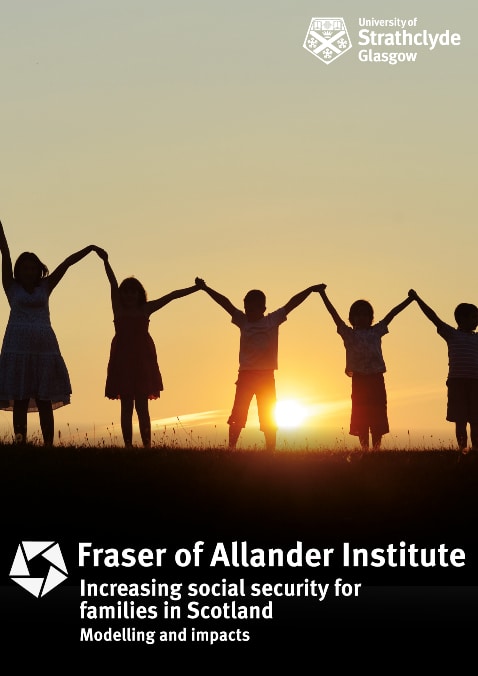As part of the Scottish Government’s stated priority of reducing child poverty, the 2021-22 Programme for Government committed the Scottish Government to beginning work on a Minimum Income Guarantee by the end of the parliament. An independent Expert Group was convened in 2021 to inform and design a Minimum Income Guarantee.
The Fraser of Allander Institute was commissioned by the independent Expert Group to undertake modelling for some of the Expert Group’s recommendations ahead of their final report being published.
The Expert Group’s Interim Report outlined that the goal of a Minimum Income Guarantee is to ensure that all households in Scotland receive an agreed minimum disposable income. They suggest that the level of the guarantee should be set based on the Minimum Income Standard developed and maintained by Loughborough University (Davis et al. 2024). Households would achieve the guaranteed minimum income through a combination of:
- Income from fair and accessible work,
- Affordable household costs and universal basic services, and
- Social security payments.
The Expert Group’s final report maps out a pathway to delivering a Minimum Income Guarantee for Scotland. The first stage of their recommendations relies on current devolved powers and cooperation with the UK Government to strengthen the social security system.
This report provides modelling of the costs and impacts of two of the recommendations from the first stage of the Expert Group’s plan for delivering a Minimum Income Guarantee. The recommendations modelled here are:
- An increase in the rate of Scottish Child Payment to £55 per week, per child, and
- Removal of the two-child limit.
The impact of removing the two-child limit and increasing the Scottish Child Payment is significant. Combined, we estimate that they would reduce relative child poverty by about 6 percentage points after housing costs. This decrease represents about half of the distance between our baseline rate of 22% and the 2030 relative child poverty target of 10%.
Combined, we estimate that the two policies would cost about £724 million in 2030/31 (£626 million in 2024/25 prices). This amount is roughly 10% of the devolved social security budget in Scotland in 2024/25.
This research was supported by funding from The Robertson Trust.
Authors
Hannah is a Fellow at the Fraser of Allander Institute. She specialises in applied social policy analysis with a focus on social security, poverty and inequality, labour supply, and immigration.

